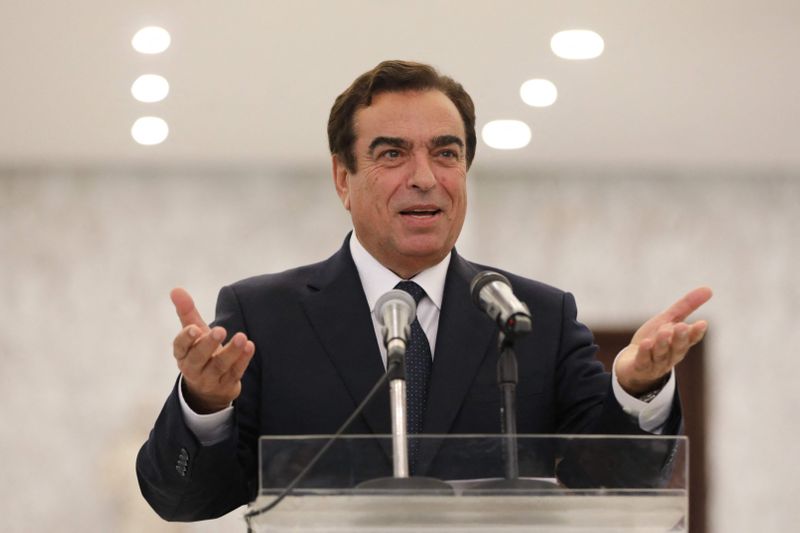In the fight over if and when a vote on the bipartisan infrastructure bill would take place and whether it would be tied to a vote on President Joe Biden’s broader economic agenda, one fact was overlooked: House Democrats passed their own infrastructure bill in July. The reason you haven’t heard much about that measure is that the House acquiesced to the Senate’s demand that it vote on the Senate’s bill without amendment. In doing this, the House accepted a bill that not only omitted many progressive priorities but also had no input from its members.
If the irrelevance of the House in this negotiation were an unusual case, it may not be cause for concern. But this is the way most major laws have been made for the past decade: They are products of the Senate with little or no House involvement. This is because the House—whether controlled by Democrats or Republicans—now acts as if it were a unicameral legislature in a parliamentary system, rather than acknowledging that it is only one of two legislative chambers in a presidential system. It routinely passes partisan legislation that cannot pass in the Senate, because it is too far out of the American ideological center. The result is a House of Representatives that now serves only to either block or—in the case of “must pass” legislation—rubber-stamp Senate bills on major issues. Members of the House have largely given up their power, and thus their constituents’ power, to create legislation that addresses our nation’s biggest problems.
From the November 2018 issue: How Newt Gingrich destroyed American politics
This state of affairs is not what the Founders intended. Two of the main reasons the Framers of the Constitution created two chambers of Congress were to provide Americans with multiple access points to the lawmaking process, and to force representatives and senators to deliberate and compromise. They believed that this would not only produce the best laws but also promote the legitimacy of these laws, because the manifold voices in our nation would have the potential to be heard through their representatives as well as their senators.
As I wrote in a chapter of Under the Iron Dome, a recently published anthology, members of the House now mainly represent their party and its platform rather than their constituents’ diverse views. Through changes in the rules, members have relinquished much of their individual power and disempowered committees in order to give their party leaders the ability to shape legislation for the purpose of pursuing the party’s goals. In formulating legislation, party leaders cater to interest groups, activists, and donors aligned with the party to build electoral support. These supporters tend to be further toward the ideological extremes. Little to no effort is expended to pick up votes from the other party in the legislative process. This may be a reasonable way to legislate in a single-chamber parliamentary system, but the House is only one half of one branch in the American lawmaking process.
The problem with the House legislating in this manner is compounded by the prevalence of divided government, where control of the White House, the House, and the Senate is split between the parties. Divided government has occurred more than 30 out of the past 41 years, or 40 out of 41 when considering the need for 60 votes in the Senate to overcome a filibuster. During these periods, only bipartisan bills can become law, and partisan House legislating only contributes to gridlock. Sometimes, however, a consensus emerges that legislation must be passed to address a particular issue. When this has occurred in the past decade, the necessary bipartisan compromise bill has been written in the Senate and passed without changes by the House. This happened in October 2013 and January 2018, when Republicans controlled the House and a compromise was needed to end a government shutdown. But it also happens when the House is in Democratic hands. In 2019, when there was a humanitarian crisis at the southern border, a bipartisan bill produced in the Republican Senate became law, because the bill passed by House Democrats could not pass in the Senate.
Read: Political polarization killed the filibuster
When one of the two chambers of Congress is not contributing to lawmaking on the most important issues facing our country, our democracy is not healthy. It is especially troublesome when the weak link is the House, because that chamber was intended to play a preeminent role in ensuring the people’s democratic control of the republic. The House has always been considered the bulwark of American democracy.
Could we solve this problem by eliminating the Senate filibuster? Perhaps. But divided government is now prevalent. And even when Republicans had unified control in 2017 and 2018, and used the budget-reconciliation process to skirt the filibuster in their attempts to repeal the Affordable Care Act and enact big tax cuts, the Senate still largely determined the outcome on both bills. The Build Back Better reconciliation bill will again test whether the House can generate leverage vis-à-vis the Senate even without the filibuster.
Jane Chong: This is not the Senate the Framers imagined
Another option to make the House more effective at legislating, and to open up the possibility of more voices being heard in the lawmaking process, would be to change the chamber’s rules to re-empower individual members and committees, thus providing more opportunities for bipartisan legislating to occur in the House. The bipartisan House Problem Solvers Caucus, of which I was a member, attempted to do this in 2018, when it endorsed a package of rule changes. Leveraging our votes in the January 2019 speaker-of-the-House election enabled us to win a few changes. A new speaker will be elected in the next Congress (assuming that Nancy Pelosi keeps her pledge to step down or Republicans become the majority), presenting another opportunity to secure rule reforms. But if nothing changes, “the people’s House” will continue to produce more theatrics than solutions, failing the people and our democracy.







